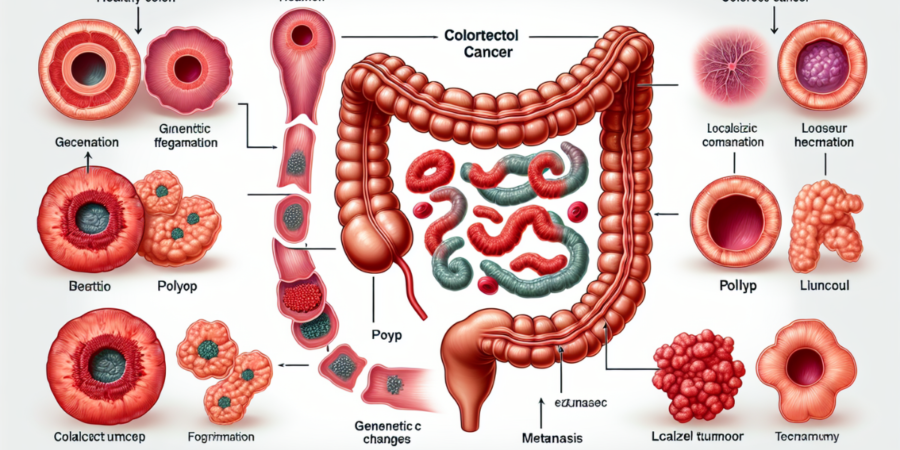Introduction:
Colorectal cancer, also known as bowel cancer or colon cancer, is a type of cancer that begins in the colon or the rectum. Both of these are parts of the large intestine located at the lower end of the digestive system. It is the third most common type of cancer in both men and women worldwide.
Description:
Colorectal cancer usually starts as polyps, which are small, benign clumps of cells on the inner lining of the colon. Over time, some of these polyps can develop into cancerous cells. The cancer can then grow and invade the wall of the colon and may spread to other parts of the body (metastasize). There are several types of colorectal cancers, with the most common being adenocarcinomas.
Symptoms:
The symptoms of colorectal cancer include changes in bowel habits, such as diarrhea or constipation, rectal bleeding, persistent abdominal discomfort, weakness or fatigue, and unexplained weight loss. However, many people with colorectal cancer experience no symptoms in the early stages of the disease, which is why regular screening is so important.
Risk Factors:
Several factors increase the risk of colorectal cancer. These include age (the risk increases after age 50), a personal or family history of colorectal cancer or polyps, inflammatory bowel diseases, a low-fiber, high-fat diet, physical inactivity, obesity, smoking, heavy alcohol use, and certain types of inherited syndromes.
Prevention and Screening:
While some risk factors, like age and family history, can’t be changed, others can be addressed through lifestyle changes such as maintaining a healthy weight, staying physically active, limiting red and processed meats, and avoiding tobacco and excessive alcohol. Regular screening is crucial for early detection because it can identify polyps before they become cancerous. The most common screening methods are colonoscopy and fecal occult blood tests.
Treatment:
Treatment for colorectal cancer depends on the stage, location, and overall health of the patient. Options may include surgery, radiation therapy, chemotherapy, targeted therapies, and immunotherapy. In many cases, a combination of these treatments is used.
Conclusion:
Colorectal cancer is a major health concern globally, but with early detection and appropriate treatment, it can be effectively managed. Regular screenings and maintaining a healthy lifestyle are crucial in preventing and managing this disease.


Leave a Reply